Do Electric Cars Need Oil Changes?
Do Electric Cars Need Oil Changes? Electric cars use completely different drivetrains, so you will never have to worry about routine oil changes that are necessary for traditional cars. However, it’s worth noting that your electric car does not need oil.
Read Top 10 Electric Cars with Longest Range
Despite this exemption, it’s essential to conduct routine checks on these 3 fluids in EVs; coolant, brake fluid, and windshield washing fluid. Regular maintenance ensures the smooth functioning of your electric vehicle and prolongs its lifespan.
Read Tesla Cybertruck Price: Elon Musk Break its Biggest Promise?
So, while the answer Do Electric Cars Need Oil Changes? is a resounding no, attention to other vital fluids remains crucial for optimal performance.
The transition to electric and hybrid vehicles is gaining momentum, but along with it comes a lingering question for many drivers accustomed to gas-powered cars: Do hybrids and electric cars need oil changes?
Buckle up, eco-conscious motorists, as we delve into the truth behind oil changes in these innovative vehicles!
Read Explore the Top Electric Car Brands in the USA

Why Do Cars Need Oil Changes?
Before we dive into the specifics of hybrids and EVs, let’s revisit why conventional cars need oil changes.
Most vehicles with internal combustion engines (ICE) rely on motor oil to lubricate moving parts, prevent wear, and manage heat generated by friction.
Over time, oil degrades and accumulates contaminants, necessitating regular changes. Now, let’s address the burning question:
Read First Flying Car Concept OR 1st Flying Car
Do Hybrid Cars Need Oil Changes?
Yes, indeed! Hybrid cars—those ingenious blends of electric and combustion power—require oil changes. Despite their unique design, hybrid vehicles share this maintenance need with their traditional counterparts. Here’s why:

- Internal Combustion Engine (ICE):
- Even though hybrids spend less time using their ICE, these engines still require proper care.
- Failing to change the oil can lead to engine damage, component grinding, and costly repairs.
- Frequency of Oil Changes:
- The frequency depends on the type of oil you use:
- Standard Oil: Stick to the typical schedule—change it every 5,000 miles.
- Synthetic Oil: If you opt for synthetic oil, you can stretch it to 7,000 to 10,000 miles before an oil change.
- The frequency depends on the type of oil you use:
Read Flying Cars Concept: The Future of Mobility
Hybrids: A Blend of Engine & Electric
Hybrid cars combine a gasoline engine with an electric motor, offering both fuel efficiency and power. However, since they still have an internal combustion engine, hybrids do require oil changes. The frequency depends on several factors, including:
- Manufacturer recommendations: Consult your owner’s manual for the specific intervals recommended by your car’s manufacturer. These can vary depending on the model and driving conditions.
- Oil type: Synthetic oils often offer longer change intervals compared to conventional oil.
- Driving habits: Frequent short trips can lead to faster oil degradation, potentially requiring more frequent changes.
Electric Cars & Oil Changes
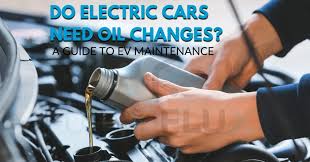
Now, what about electric vehicles (EVs)? Do Electric Cars Need Oil Changes? Here’s the scoop:
- EVs don’t have traditional combustion engines, so they don’t need oil changes in the same way.
- However, there’s a caveat:
- Gear Oil: Some EVs use gear oil for their transmissions. While it doesn’t require frequent changes like engine oil, keeping an eye on it ensures your EV stays in top condition.
Read ALL New Electric SUVs Coming in 2024
Electric Vehicles: Oil-Free Freedom
Unlike hybrids, pure electric vehicles (EVs) do not require oil changes. They have no internal combustion engines, relying solely on electric motors for propulsion. This translates to significant benefits:
- Reduced maintenance costs: Eliminates the need for oil changes and associated expenses.
- Convenience: No more scheduling appointments or getting your hands dirty with messy oil changes.
- Environmentally friendly: No used oil disposal contributes to a cleaner environment.
But Wait, There’s More!
While EVs don’t need oil changes, other essential fluids require maintenance:
- Coolant: Regulates battery and motor temperature. Check levels and top up periodically as recommended by your manufacturer.
- Brake fluid: Essential for hydraulic braking systems. Get it flushed and replaced at specified intervals.
- Windshield washer fluid: Keeps your vision clear. Refill as needed.
Read ALL New LUXURY Electric Cars Coming in 2024
Do Electric Cars Need Oil Changes?
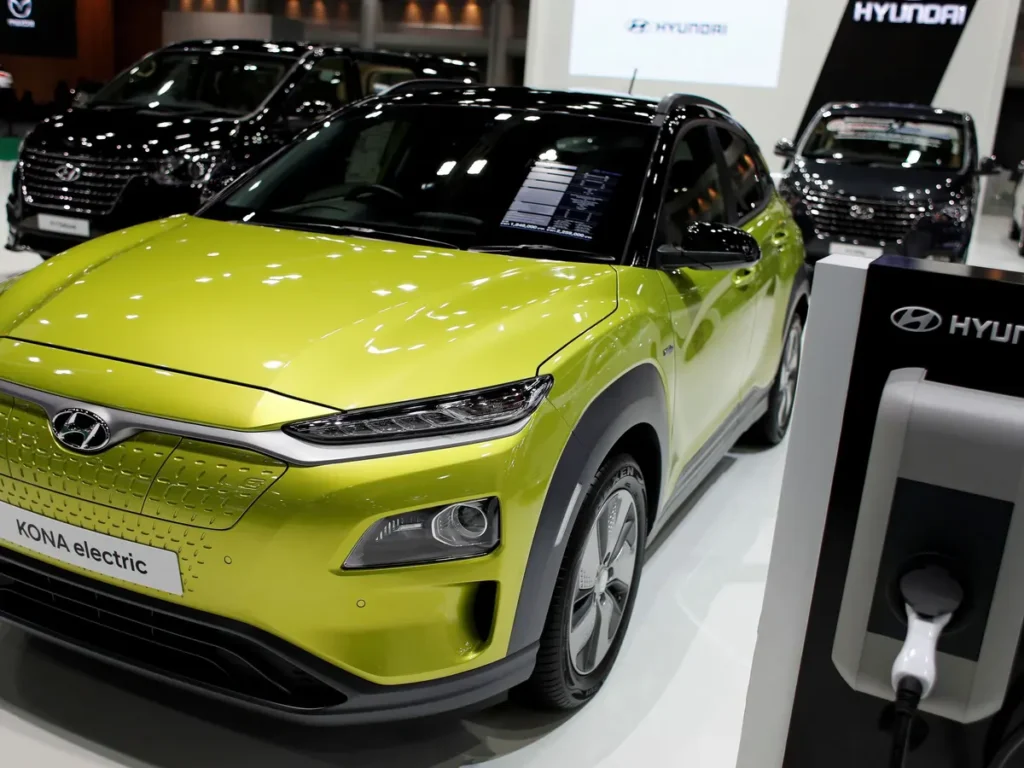
The Oil Change Conundrum
When it comes to electric cars (EVs), the simple answer is no. Unlike their gasoline-powered counterparts, EVs don’t require regular oil changes. Here’s why:
- Electric Motors vs. Combustion Engines:
- Electric Motors: These powerhouses have a minimal number of moving parts, and they operate without the need for lubrication. No oil means no oil changes!
- Combustion Engines: In traditional ICE vehicles, oil plays a crucial role in lubricating moving components like pistons, crankshafts, and valves. Over time, oil thickens, accumulates contaminants, and loses effectiveness. Hence, the a need for regular oil changes.
- Maintenance Differences:
- EVs: While they don’t need frequent oil changes, EVs aren’t entirely maintenance-free. Here’s what they do require:
- Battery Maintenance: Monitoring battery health and ensuring optimal charging.
- Coolant: Keeping the battery and other components at the right temperature.
- Brake Pads: Checking and replacing as needed.
- Tires: Regular rotation and replacement.
- Transmission Fluid (in some cases): Yes, EVs still have transmission fluid, but it’s not as frequent as oil changes.
- Hybrids: These vehicles, which combine electric and gasoline power, do need oil changes. Think of hybrids as gas cars with an extra battery pack and electric motor(s).
- EVs: While they don’t need frequent oil changes, EVs aren’t entirely maintenance-free. Here’s what they do require:
- Environmental Impact:
- Skipping oil changes in EVs contributes to their overall environmental friendliness. No oil changes mean less waste oil and fewer resources used.
Read All New EVs Coming to America in 2024
Why Electric Cars Don’t Need Oil Changes?
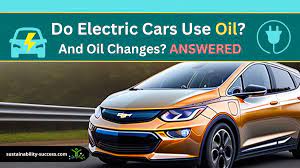
No more crawling under your car, no more messy oil drains, no more wondering “What kind of oil does my car need?” If you drive an electric car, this dream is a reality.
But for those transitioning from gas-powered vehicles, a lingering question remains: Do electric cars need oil changes?
Buckle up, eco-conscious drivers, as we dispel this common misconception and explore the maintenance-free wonders of electric vehicles!
Read 35 New Electric Cars & Trucks Coming in 2024
Understanding the Why Electric Cars Don’t Need Oil Changes?:
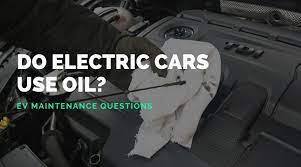
Traditional gasoline engines rely on internal combustion, where pistons burn fuel and oil lubricate moving parts to reduce friction and wear. This process generates dirty oil that needs regular changing to maintain engine health.
Electric cars, however, have no internal combustion engines. They’re powered by electric motors that rely on magnets and electricity, eliminating the need for oil lubrication. So, no engine, no oil, no oil changes!
Read TOGG Unveils New Electric Sedan at CES 2024
But What About Other Fluids?
While electric cars ditch the oil, they still require regular maintenance of other fluids. Here’s what to keep an eye on:
- Coolant: Regulates battery and motor temperature. Check levels and top up periodically as recommended by your manufacturer.
- Brake fluid: Essential for hydraulic braking systems. Get it flushed and replaced at specified intervals.
- Windshield washer fluid: Keeps your vision clear. Refill as needed.
Read Top 30 Electric Crossovers (Tesla Model Y Rivals)
Benefits Beyond Clean Hands:
Ditching oil changes isn’t just convenient, it offers several advantages:
- Reduced maintenance costs: Skip the oil change appointments and associated expenses.
- Environmentally friendly: No used oil disposal means less environmental impact.
- More time for you: Spend less time on car maintenance and more time enjoying the EV lifestyle.
The Electric Future is Maintenance-Light:
As electric vehicle technology evolves, maintenance requirements are expected to further decrease. Imagine a future where car care involves little more than topping up some fluids and enjoying a smooth, quiet ride.
Read 15 Electric Cars TESLA Can’t Beat
In Summary: Care & Maintenance
In summary, Do Electric Cars Need Oil Changes? The answer is a definitive no. Electric cars don’t need oil changes, but they do need thoughtful care.
While EVs spare us from the oil change ritual, they still require attention. Regular checks on coolant levels, tire wear, and brake pads are essential. Plus, keeping an eye on battery health ensures longevity.
- Hybrids: Change oil as recommended based on the type (standard or synthetic).
- EVs: Focus on other aspects like battery health, coolant levels, brake pads, and tire wear.
Read Are Electric Cars Better for the Environment
The Future of Maintenance-Light Driving:
As electric vehicle technology advances, maintenance requirements are expected to decrease further. Imagine a future where car care involves minimal fluid checks and enjoying the smooth, quiet ride of an EV.
Remember, whether you’re driving a hybrid or an electric car, regular maintenance ensures a smooth, efficient ride. So, charge up, stay informed, and keep those wheels turning!
Read Explore the Top Electric Car Brands in the USA
Buy On Amazon
Vehicle Maintenance Log Book: Car Repair Journal / Automotive Service Record Book / Oil Change Logbook / Auto Expense Diary / Engine Autolog / Automobile, Truck Or Motorcycle Owner Gift Notebook
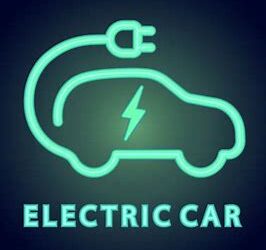




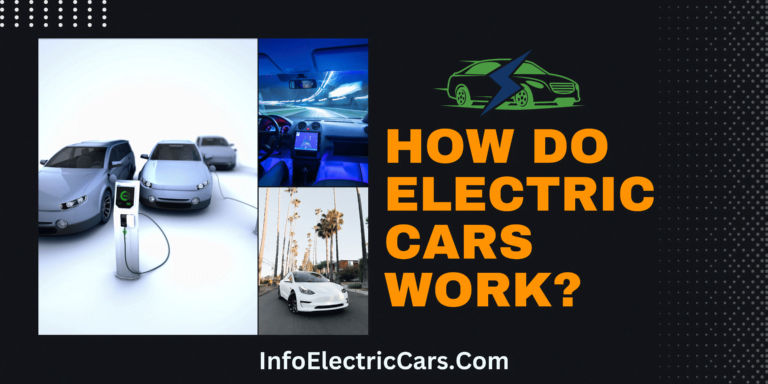
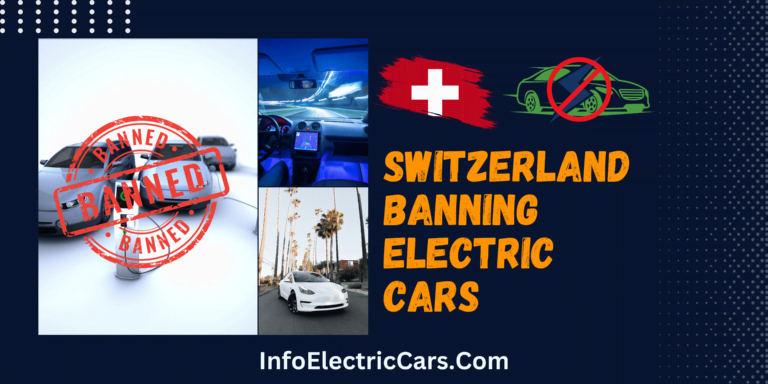


2 Comments